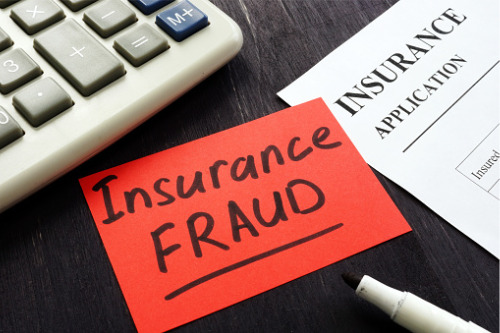Insurance fraud is a type of fraud perpetrated against or by an insurance company or agent for the purpose of financial gain.
This is a deliberate deception normally orchestrated by persons seeking to make some gains that they do not deserve.
These fraud activities according to the National Insurance Commission may be committed at different points by applicants, policyholders, third-party claimants, or professionals who provide services to claimants. Insurance agents and company employees may also commit insurance fraud.
According to the NIC, about US$10 million to US$40 billion is lost yearly to insurance fraud.
Common frauds include “padding,” or inflating claims; misrepresenting facts on an insurance application; submitting claims for injuries or damage that never occurred; and staging accidents.
People who commit insurance fraud according to the Insurance Information Institute include:
1. Organized criminals who steal large sums through fraudulent business activities
2. Professionals and technicians who inflate service costs or charge for services not rendered, and
3. Ordinary people who want to cover their deductible or view filing a claim as an opportunity to make a little money
4. Offenders include insurance companies and some employees perpetrate
Insurance fraud normally comes in the form of fake doctor’s reports, multiple insurances, submitting false claims of an accident, a Jump-in claimant (a person who was in a vehicle at the time of the accident), Staging accidents, etc.
Individuals also engage in premium diversion, where a business or individual sells insurance without a license and then does not pay claims.
Here is an example of Insurance Fraud according to Investopedia:
The owner of a vehicle might attempt to cut the costs of insurance premiums by using a false registration. If the vehicle owner lives in an area with high-rate premiums because of recurring car theft in the neighborhood or other reasons, the owner might try to register the vehicle in a different area to lower their premiums.
Repair work on a vehicle could also become a source of insurance fraud. For example, a repair shop that is expecting payment from the insurer might charge for extensive work but then use cheap or even fake replacements. They might also overcharge the insurer by overstating the extent of the repairs needed.
Recommendation
To avoid insurance fraud, make sure to perform due diligence on the insurance package you want to buy before buying.
Also, ensure that you scout for other insurance packages on the market to be entirely certain that what you want to buy meets your demands.
You may also want to provide only correct and true information when signing an insurance application form since a piece of false information can cause you to lose your insurance.
It is however worth noting that no matter the circumstance you find yourself in, there is no justification for fraud.
Source: www.ghanaweb.com














